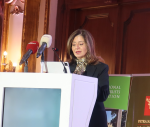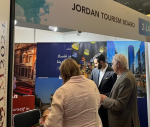You are here
Science triumphs again
Mar 18,2018 - Last updated at Mar 18,2018
Stephen Hawking, who passed away last week, was remarkable not only for his achievements in science, but also for his belief that science can lift people out of ignorance, poverty and cure disease.
One example that supports this view is the plight of millions of people everywhere who suffer bone loss due to injury, infection, disease or abnormal skeletal development. Treatment often requires bone grafting, but people have only a limited amount of bone available for grafting. Therefore, demand for synthetic bone substitutes is high.
The challenge is that substitutes need to resemble bone in many ways, they need to be strong enough to support the loads which they will bear, they need to contain pores to be penetrated by blood and nutrients, they need to support bone regeneration and finally they need to be accepted by the host.
The answer to these people’s prayers came from scientists, working at Sydney University, who developed a unique ceramic material that kick-starts natural bone generation by acting as a scaffold on which the body can regenerate new bone. The scaffold then gradually degrades, to be replaced by natural bone.
The leader of the research team was a biomaterials and tissue engineering professor who was internationally recognised for her contributions to regenerative medicine and orthopedic research, and who had founded the Sydney University Tissue Engineering and Biomaterials Research Unit in 2006.
Speaking about the new ceramic she said: “Our tests show that this material will not be rejected by the body. It has the potential to positively affect the quality of life of millions of people globally. We hope to see it in use clinically within the next 10 years.”
The professor, who also founded an international network called IDEAL Society dedicated to improving opportunities for women around the world, was named the 2018 New South Wales Woman of the Year in recognition of her extraordinary discovery.
At the honouring ceremony, she said: "Here I am coming from Jordan and discovering something in New South Wales that the whole world will use. Getting recognised for that, I can only thank the country for this."
Wait a moment. Did she say that she came from Jordan? Yes, as a matter of fact. We are talking about Professor Hala Zreiqat, head of the Biomaterials and Tissue Engineering Research Unit at the Sydney University Faculty of Engineering, Radcliffe Fellow at Harvard University, senior Research Fellow at the [Australian] National Health and Medical Research Council and honourary professor at Shanghai Jiao Tong University.
Professor Zreiqat grew up, studied and worked in Jordan before moving to Sydney to do a PhD in medical sciences. This decision was hard, but it transformed her life.
Despite our enormous pride, we cannot help thinking, is it not unfortunate that so many bright Arabs need to go abroad for their talents to show?
We can possibly draw consolation from the words of Louis Pasteur that science knows no country, because knowledge belongs to humanity, and it is the torch which illuminates the world.












